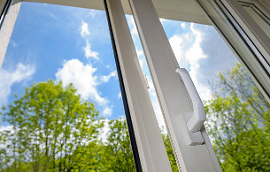It seems like every day we hear about another type of contaminant that can enter the air inside our homes, with awful potential consequences. From carbon monoxide and radon gas to mold, mildew, and smoke, the list seems to get longer each and every year. This has lead to many homeowners feeling worried, so just how bad is the air inside your home?
When your home was built can have an impact on your indoor air quality. Homes that were built in the last 15 years are generally well ventilated with air quality systems in place. Unfortunately, if your home was built before this, it means that indoor air quality could be adversely affected. Homes built in the 1970s and 1980s are particularly susceptible to bad ventilation, which can be dangerous as you are likely to have less fresh air and higher levels of indoor contaminants and allergens. Specifically, you may find that you are more likely to have pollen, dust, dirt and pet dander in your indoor air. While these are not particularly dangerous, without any fresh air to circulate throughout your home, you could struggle with health issues.
Worst Case Scenarios:
Although it is rare, some homes can suffer from even more advanced forms of contamination. The most common of these is mold. Mold thrives in damp, dark spaces and if your humidity levels are too high, your ductwork can create the ideal conditions for mold growth. This can allow mold spores to be blown directly into the air circulating around your home.
Another air quality contaminant you need to be wary of is exhaust fumes. Appliances often produce exhaust fumes, and they should be properly removed from the home, but if exhausts and ducts have not been properly cleaned, these fumes can infiltrate your indoor air.
Your indoor air can also be compromised by outdoor contaminants entering the home. Pollutants such as smoke, radon, gas, and exhaust can be very harmful, so it is important to test for these outdoor pollutants if you are setting up a new indoor air quality system. Filters and purifiers can be used to remove almost every type of contaminant, but the system will need to be tailored to the contaminants that are affecting your indoor air quality.
While the odds are your home is only suffering from dusty, stale air, if you are concerned about your indoor air quality, you should speak to a professional HVAC specialist. Although you can improve your indoor air by keeping your home clean, it is a good idea to have the air tested regularly. Poor air quality can not only impact your comfort levels, but it can create health issues. Poor air is linked to a number of health issues including fatigue, headaches, sinus problems and lowered immune system. An experienced HVAC technician can assess your system, test your air and advise you of the options to improve your indoor air. This can provide you with an immediate improvement in your indoor air to alleviate allergy symptoms and improve your overall sense of wellbeing.

